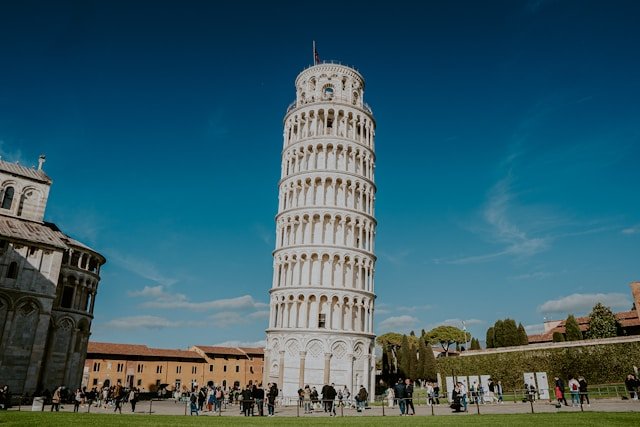
Planning a trip? Don’t get destination-duped

If you see a lot of long faces in places like Atlantic City, Buenos Aires or Disney World in Orlando, then you have a good eye. Some of these poor travelers have been destination-duped.
A silly little trend called “destination dupes” is making people believe they’ll get Las Vegas, Paris, or, in the case of Epcot, any of 11 global destinations, thanks to its world showcase.
They won’t.
Atlantic City is not the same thing as Las Vegas. Buenos Aires and Paris are worlds apart, now more than ever. And Disney is a destination in its own right, like nothing else.
Destination dupes are an old idea wrapped in a shiny new package. It promises you an inexpensive and uncrowded place to vacation that’s as good as, if not better than, the original. The trend was started by a bunch of TikTokers with nothing better to do than recycle an idea that’s as old as travel.
“Let’s be honest,” says Jeremy Murchland, president of the travel insurance company Seven Corners. “It’s not realistic to think that you can completely re-create an iconic destination somewhere else.”
So why do people think they can? Well, if you pay attention, it’s not really people — it’s people with an agenda. It’s online travel agencies and travel bloggers who have something to sell you. They want you to click on that affiliate link and book an expensive vacation to their favorite dupe destination.
If you believe what the “experts” are saying, you could get duped by a destination dupe soon. But don’t worry, I won’t allow that to happen.
Why dupe destinations are nonsense
The destination dupe trend is pure poppycock. All you have to do is travel a little bit to know that there are no destination doppelgängers in this world.
Sure, if you travel a lot, you might find yourself saying, “This place reminds me of …”
I’m staying at Sandals Grenada at the moment, where I have a beautiful view of Saint George’s and Hospital Hill. It’s lush and green and it reminds me of Hawaii. Or Bali. Or St. Lucia. But spend even a few minutes on this Caribbean island, and you won’t mistake it for any of those places.
Grenada is the chocolate capital of the Caribbean, but everyone calls it the spice island because they grow a lot of allspice, clove, cinnamon, nutmeg, and more. And you can’t leave without trying the cocoa tea.
In other words, there’s nothing like it on Earth.
As someone who travels nonstop, I can tell you that no matter what your travel advisor or your favorite TikToker says, every place is unique.
Also, isn’t travel about discovering new places instead of trying to duplicate experiences you’ve already had?
What the dupe travel trend gets right
The dupe travel trend isn’t all bad, experts say.
“Dupe travel encourages travelers to push their boundaries and explore new destinations and cultures that they might not have considered otherwise,” says Connor Smith, a vice president at IHG Hotels & Resorts.
He says many hotel guests are on the hunt for their next hidden gem. “But they also want to find a place to stay that’s authentic to the area,” he adds. Dupe destinations encourage that search for authenticity.
In other words, the dupe destination trend offers something it can’t possibly deliver. It says you can have a cheaper version of Rome or Bali that is just as good as the original — but you can’t. At the same time, it pushes you to explore the world and see things that may be even better.
So thank you, dupe destinations and all those people pushing them for their self-serving reasons, because we are going to see more of the world now.
How to avoid getting duped by a destination
So how do you avoid getting duped by a destination dupe?
Please ignore all the destination dupe lists you find online
Remember, if it’s been published then everyone will be going there, hoping to find something else. Instead, take a deep breath and figure out what you’re trying to do. “Focus on what you enjoy about the original destination,” advises Ariel Figg, a travel coach. “Look for a similar atmosphere and experience elsewhere.”
Use unconventional research methods
So if you don’t use a list, what then? James Mannings, the CEO of a luxury villa rental company, uses a little-known feature on Google called reverse image search. “You can search for an image of your favorite destination and other, visually similar destinations will pop up,” he says. “You can then do some digging to learn more about whether these dupes that have appeared are a great alternative to visit.”
It’s hard work, so ask for help
If you’re looking for a destination similar to one that’s popular, you’ll have to work at it, says Nathan Heinrich, who publishes the I’m Moving To Italy! Podcast and has found a few hidden gems that are worthy substitutes for popular destinations. It takes a lot of research. “Study a map and find seaside villages, lakes or cities that you’ve never heard of and then Google that location and search for hotels and Airbnbs where you can get a good sense of whether it’s a place you’d like to explore,” he says. And if you don’t want to do all that work? Hire a travel advisor to help you sort it out.
How do travel advisors know about the destination dupes to avoid? They do their own research, of course. “We also leverage our extensive network to ensure every recommended destination can deliver a comparable — if not superior — experience to the original,” says Ladell Carter, a travel advisor with Royal Expression Travels.
What to do about destination doppelgängers
Face it, destination dupes are like those knockoff designer bags you find on Canal Street in Manhattan. They might look convincing from a distance, but up close, the stitching always gives them away.
So instead of trying to fool yourself and your social media followers with a bargain-bin version of your dream destination, why not write your own travel story? I promise it will be much more interesting than the imitation they’re trying to sell you.
Feature Photo by Angello Pro on Unsplash


































